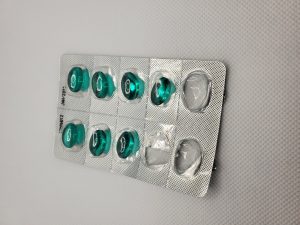The Opioid Crisis and your Rights
- Comments Off on The Opioid Crisis and your Rights

As the opioid crisis gains in momentum it is important to stay informed about drug laws. Experienced counsel can help if you find yourself dealing with a prescription drug charge. It is important to remember that abuse and distribution of prescription drugs is no different from “street” drug distribution.
O.C.G.A. 16-13-41 covers prescription drugs, namely schedule II on the federal drug schedule. “Drugs and narcotics that are illegal or only legal to possess with a lawful prescription are controlled substances.” Georgia law classifies them into 5 Schedules.
- Schedule Idrugs (for example, heroin, LSD, mushrooms, ecstasy) are those that are considered to be the most dangerous and having no medicinal value.
- Schedule IIdrugs (for example, cocaine, methamphetamine, Hydrocodone, opium, and Codeine, etc.) are those that are restricted to medical purposes and require a prescription.
- Schedule III(steroids),
- Schedule IV(Xanax and Valium), and
- Schedule Vdrugs are those that must be lawfully prescribed and have varying potential for abuse.
In January of this year Georgia doctors and prescription drug providers were required to update the Prescription Drug Monitoring Program Database (PDMP) every 24 hours. By July of this year doctors and pharmacists had to be begin checking the PDMP data base before prescribing prescription drugs that are on the controlled substance list, this includes drugs like Oxy, Vicodin, and Xanax. If (Doctors) “knowingly and intentionally” don’t use the database or ignore the information in it, they could be guilty of a crime.” This database allows doctors to more closely monitor prescription drug use.
But what do these changes mean for patients with prescriptions or those charged with possession or distribution? Some states are coming down on the prescription holder, in Minnesota a woman shared her Fentanyl patch (a prescription pain reliever) with her husband and was charged with murder when he died from an overdose, the same law applies in West Virginia and Florida. All across America, in response to the opioid epidemic, lawmakers are trying new ways to fight the crisis. In Georgia however, there are many county-based changes to combat the drug epidemic that seek to help instead of criminalizing.
- DeKalb is raising awareness and training for law enforcement and holding annual Opioid summits
- Fulton County has named a point person to focus on the opioid epidemic
- Cobb County has teamed up with David Direction Foundation to combat drug addiction
- Gwinnett County is working with Viewpoint Health to offer addiction treatment, and
- Atlanta-area police and sheriff’s deputies are carrying Narcan and treating jail inmates suffering from painful withdrawal symptoms.
The state of Georgia also has implemented the 911 Medical Amnesty Law which provides limited immunity for people that report an overdose, even if they provided the drugs. The state wants to encourage people to call for help without fear of law enforcement, so that an overdose death can be prevented. However, this law is not a complete bar to prosecution. Limited liability leaves discretion to the courts, therefore drug use, possession, and distribution, can still result in some form of retribution, which potentially carries a substantial felony sentence:
- Unlawful possession of any Schedule I Controlled Substance, Schedule II narcotic, or Schedule II non-narcotic is a felony punishable by a term of incarceration of 2 to 30 years, depending on the quantity.
- Unlawful possession of Schedule III, IV or V controlled substance is a felony and punishable by a 1 to 5 year term of incarceration.
- Unlawful sale/distribution of any Schedule I or II Controlled Substance is a felony punishable by a term of incarceration of one to 30 years in prison, depending on quantity.
- Sale of any Schedule III, IV or V Controlled Substance is a felony punishable by one to ten years in prison, depending on quantity.
If you find yourself charged with possession or distribution, even of your own prescription, it is important to get legal help immediately. As lawmakers attempt to correct the opioid crisis your rights still require protection. At Bixon Law, we are experienced attorneys and we always go the extra mile for our clients. If you or a family member has been charged with any violation of the law, please call us at 404-551-5684 for a free consultation today.









